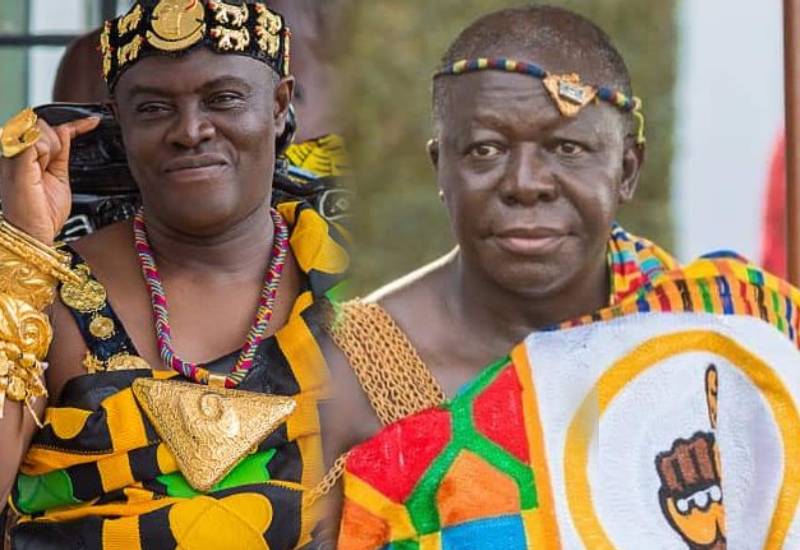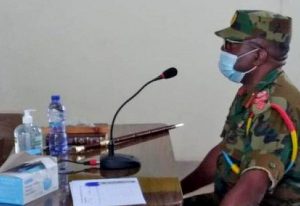In a striking display of defiance, Dormaahene Osagyefo Oseadeyo Agyemang Badu II has openly challenged the authority of Asantehene Otumfuo Osei Tutu II, igniting a wave of concern among traditional leaders and citizens alike. This escalating conflict, evident through a series of high-profile clashes and pointed remarks, raises troubling questions about the future of chieftaincy in the Ashanti Region and the broader implications for Ghanaian unity.
A Historical Clash of Authority
The Dormaahene’s latest assertion, “You have no authority to install a paramount chief at Fiapre,” reflects a long-standing and contentious relationship between the two chieftaincy houses. The town of Fiapre, which falls under the jurisdiction of the Asantehene, has found itself at the center of this dispute. This challenge not only questions the Asantehene’s traditional powers but also threatens the intricate historical ties that have governed the relations between the chiefdoms of Dormaa and Asante for generations.
Historical context reveals that the relationship between the Dormaahene and the Asantehene has fluctuated over the years, primarily due to five significant clashes:
-
Elevation of Dormaa Stool to Paramountcy: The Dormaahene’s push for recognition as a paramount chief has been a major flashpoint, igniting disputes over jurisdiction and authority in the region. “Sampa is my town, Bono and Ahafo… Agyeman Badu (the first) took his oath here before going to assume his throne. He was a teacher here at Government Boys School. He swore in front of my uncle before assuming his position,” Otumfuo stated. (October 19, 2023)
-
Response to Asantehene on Dormaa’s Paramountcy Claims: The Dormaahene has often challenged the Asantehene’s responses to his claims, leading to public exchanges that have drawn the attention of traditional councils and the populace.
-
Controversy Over Who Is a King in Ghana: This enduring debate delves into the legitimacy and historical precedence of various traditional authorities, complicating the efforts to define a cohesive leadership structure within the Ashanti Region.
-
Attendance at Berekumhene’s Funeral: Incidents surrounding attendance at funerals of key chiefs have often served as a litmus test for the relationships between different factions, further escalating tensions.
-
Installation of Fiaprehene: The question of authority in the installation of the chief of Fiapre has recently become a focal point, with the Dormaahene dismissing the Asantehene’s prerogative to install a chief in the area.
Silence from the Ashanti Regional House of Chiefs
Despite the severity of the situation, the Ashanti Regional House of Chiefs has maintained a hesitant silence, prompting concern among citizens and traditionalists who fear that such inaction could embolden further dissent against established authority. The lack of a unified response from elder chiefs has left a vacuum that could potentially destabilize the region’s intricate network of chieftaincy relations.
A vox pop conducted by Ashantibiz News on the streets of Kumasi reveals a palpable unease among residents. Many express concern that the Dormaahene’s aggressive stance not only undermines the authority of the Asantehene but also threatens the socio-political fabric of the region. “If our chiefs aren’t united, how can we, the people, feel secure in our identities?” one resident lamented.
Potential Consequences
The ramifications of this conflict extend beyond the Ashanti Region, with implications for national stability. The struggle for power and recognition within traditional leadership can lead to divisions that resonate throughout communities and can ultimately affect national governance as well.
The fierce rivalry between the Dormaahene and Asantehene underscores a critical moment in Ghana’s chieftaincy landscape. As tensions mount, the need for dialogue and reconciliation amongst the leadership becomes increasingly urgent. The silence of key stakeholders like the Ashanti Regional House of Chiefs may well be a ticking clock, and the need for resolution is now more crucial than ever to preserve both the culture and unity of Ghana.
Godwin Owusu Frimpong




